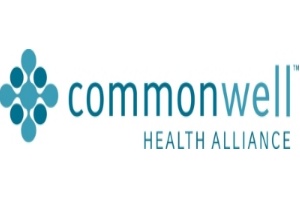patient access
See the following -
Health IT For Consumers Could Transform Health Care
Some of the great innovators in retailing in the past decade emerged as giants because they recognized that consumers prefer the convenience of electronic delivery. Read More »
- Login to post comments
Health IT Task Force Synthesizes Open API Themes
 Health IT integration will reach a significant threshold when, as specified under 2015 Edition criteria, electronic health records systems and related tools must provide consumer-facing access to the Common Clinical Data Set via an application programming interface (API). Hard at work deciphering how consumers could leverage API technology to access patient data is the Joint API Privacy and Security Task Force...
Health IT integration will reach a significant threshold when, as specified under 2015 Edition criteria, electronic health records systems and related tools must provide consumer-facing access to the Common Clinical Data Set via an application programming interface (API). Hard at work deciphering how consumers could leverage API technology to access patient data is the Joint API Privacy and Security Task Force...
- Login to post comments
Health Reform Leaders Focus on Patient Access to Records as Key Barrier
A convocation of trend-setters and organizational leaders in U.S. health care was called together in Washington last Monday, June 4. The attendees advised two government organizations driving health reform--the Office of the National Coordinator at the Dept. of Health and Human Services, and the Dept. of Veteran Affairs--how to push forward one of their top goals, patient engagement.
- Login to post comments
How Community Health Centers Support Patient-Centered Care
Each year, HHS celebrates Community Health Centers week. It is a time where the agency recognizes the impact community health centers have on patient-centered care and how they promote access to care in vulnerable or medically underserved populations...
- Login to post comments
How Restyling The Mundane Medical Record Could Improve Health Care
The results of a contest sponsored by the White House shows how powerful a dose of design can be in treating what ails our medical system. Read More »
- Login to post comments
Increasing Transparency, Activating Patients: The Case For Open Medical Notes
A group of health leaders, consumer advocates, and medical professionals are gathering in Washington, D.C., today to advance a simple idea that I see as transformational—having doctors make medical notes available to their patients so they can become more engaged in their care. Read More »
- Login to post comments
Interoperability and Patient Access Just Became Law
When President Obama signed the 21st Century Cures Act (HR 34) into law in December, the world of healthcare IT was turned on its ear. Interoperability and access – two concepts that have eluded old-school healthcare IT vendors – became enshrined as the cornerstone of the newest and most comprehensive healthcare innovation legislation to date. In addition, although the Act didn’t intend to push healthcare IT into the cloud age, it may very well have, as the required access and sharing will be exceedingly difficult to accomplish without an agile cloud-based system...
- Login to post comments
Keeping Everyone in the Know: New CMS ADT Rule
 On March 9, 2020, the Centers for Medicare & Medicaid Services (CMS) issued the Interoperability and Patient Access Final Rule aimed at enhancing interoperability and increasing patient access to health information. This Final Rule contains a new Condition of Participation (CoP) that requires all hospitals, psychiatric hospitals, and Critical Access Hospitals to electronically share (via an electronic health record [EHR] or another electronic administrative system) event notifications (also referred as e-notifications) with other providers across the continuum of care. These event notifications should occur whenever patients have an emergency department (ED) or inpatient admission, discharges, or transfers (also known as ADTs) in community hospitals.
On March 9, 2020, the Centers for Medicare & Medicaid Services (CMS) issued the Interoperability and Patient Access Final Rule aimed at enhancing interoperability and increasing patient access to health information. This Final Rule contains a new Condition of Participation (CoP) that requires all hospitals, psychiatric hospitals, and Critical Access Hospitals to electronically share (via an electronic health record [EHR] or another electronic administrative system) event notifications (also referred as e-notifications) with other providers across the continuum of care. These event notifications should occur whenever patients have an emergency department (ED) or inpatient admission, discharges, or transfers (also known as ADTs) in community hospitals.
- Login to post comments
Key Organizations Come Together in Support of Patient-Centered and Interoperable Health IT
 The National Association for Trusted Exchange (NATE) and CommonWell Health Alliance® today announced that each would become a member of the other’s organization. They have agreed to establish a mutual synergistic and complementary relationship with the goal of enhancing cross-vendor interoperability to better assure provider and patient access to health data regardless of where care occurs. NATE is a not-for-profit membership association focused on enabling trusted exchange among organizations and individuals with differing regulatory environments and exchange preferences...
The National Association for Trusted Exchange (NATE) and CommonWell Health Alliance® today announced that each would become a member of the other’s organization. They have agreed to establish a mutual synergistic and complementary relationship with the goal of enhancing cross-vendor interoperability to better assure provider and patient access to health data regardless of where care occurs. NATE is a not-for-profit membership association focused on enabling trusted exchange among organizations and individuals with differing regulatory environments and exchange preferences...
- Login to post comments
Key Organizations Come Together in Support of Patient-Centered and Interoperable Health IT
 The National Association for Trusted Exchange (NATE) and CommonWell Health Alliance® today announced that each would become a member of the other’s organization. They have agreed to establish a mutual synergistic and complementary relationship with the goal of enhancing cross-vendor interoperability to better assure provider and patient access to health data regardless of where care occurs. NATE is a not-for-profit membership association focused on enabling trusted exchange among organizations and individuals with differing regulatory environments and exchange preferences...
The National Association for Trusted Exchange (NATE) and CommonWell Health Alliance® today announced that each would become a member of the other’s organization. They have agreed to establish a mutual synergistic and complementary relationship with the goal of enhancing cross-vendor interoperability to better assure provider and patient access to health data regardless of where care occurs. NATE is a not-for-profit membership association focused on enabling trusted exchange among organizations and individuals with differing regulatory environments and exchange preferences...
- Login to post comments
Launch Of Connect 4.0 – An HIE Advancement Driven By Federal Collaboration
I am excited to announce that today, February 11, 2012, we are releasing CONNECT version 4.0, which supports the current federal IT standards and Meaningful Use Stage 2 core objectives related to the secure electronic exchange of information. Read More »
- Login to post comments
Let Patients Read Their Medical Records
Sometimes, before I interview new patients, while I’m waiting for them to be transported from the emergency department to the medical floor, I play a game.
I look through their lab tests. I peruse their imaging studies. I read other doctors’ notes and recent discharge summaries. Then I guess what the diagnosis is. I know this is bad. It goes against most of what I learned about good doctoring in medical school — that the patient’s story is the core of medicine, that it’s essential for accurate diagnoses and therapeutic relationships...
- Login to post comments
Limited EHR Access To Lead Patients To Switch Providers?
As eligible hospitals and professionals in the EHR Incentive Programs already know, Stage 2 Meaningful Use ups the ante on patient engagement by requiring these providers to exceed certain thresholds for patient access to health information. But why should providers care about EHR patient access? Read More »
- Login to post comments
Logging On For Life
Digital access to medical records empowers patients through better communication, smarter decisions, and continuous health tracking online. Read More »
- Login to post comments
McMaster Gets $5.8 Million To Improve Electronic Health Records
McMaster University is getting $5.8 million from the federal government to create a personal health record that will let patients take control of their information and communicate with doctors online — including making appointments. Read More »
- Login to post comments